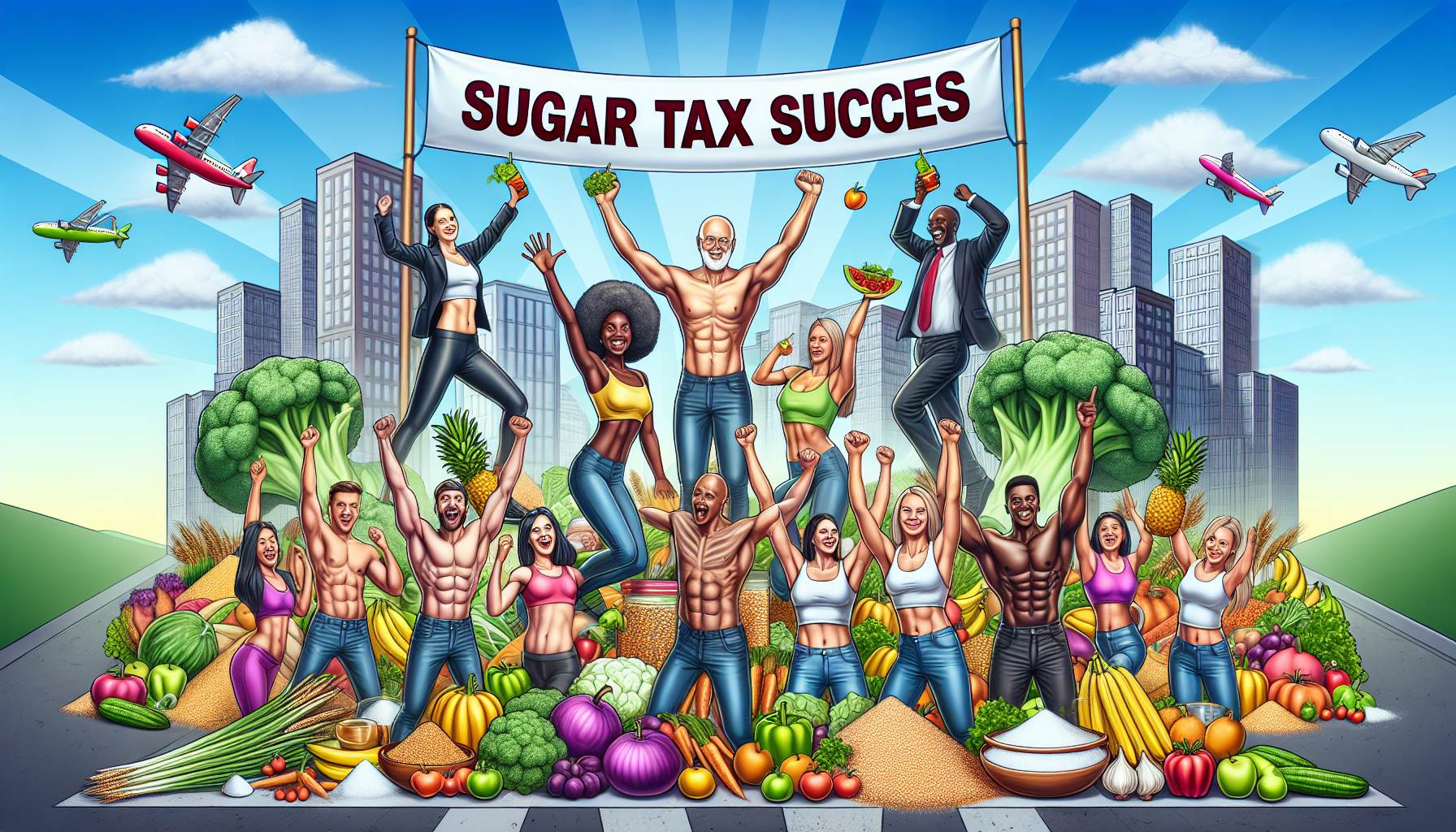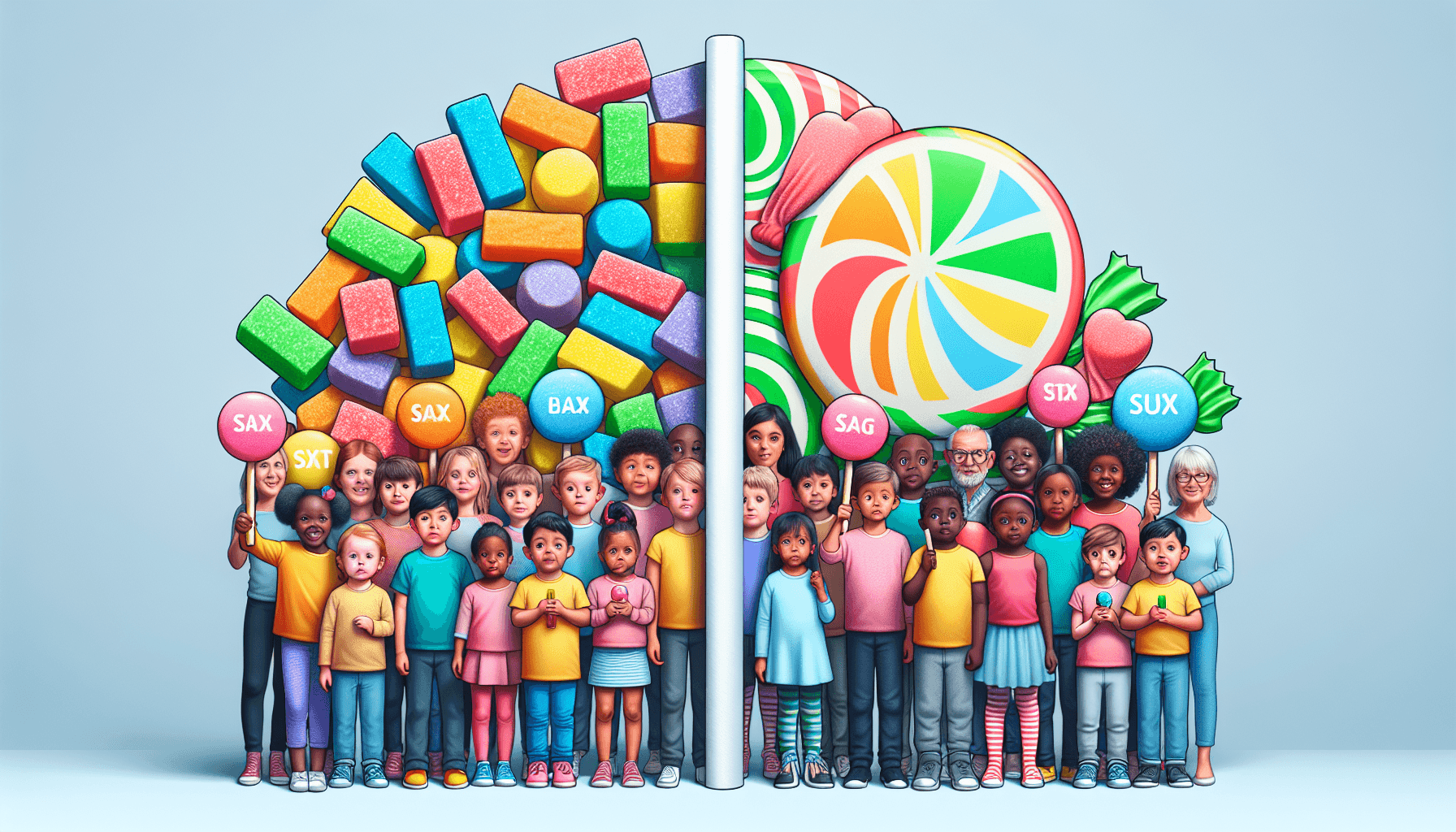Today in Edworking News we want to talk about Children’s daily sugar consumption halved just a year after tax, study finds
Experts say success shows expansion of tax to cover other foods and drinks is a ‘no brainer.’ The amount of sugar consumed by children from soft drinks in the UK halved within a year of the sugar tax being introduced, a study has found. The tax, which came into force in April 2018, has been so successful in improving people’s diets that experts have said an expansion to cover other high sugar food and drink products is now a “no-brainer.” The research, published in the Journal of Epidemiology and Community Health, looked at responses from 7,999 adults and 7,656 children between 2008 and 2019 to the annual nationally representative UK National Diet and Nutrition Survey.
It showed that the daily sugar intake for children fell by about 4.8g, and for adults, 10.9g, in the year after the levy’s introduction. The total dietary free sugars, including food and drink, in children was about 70g a day at the beginning of the study, but this fell to about 45g by the end. For adults, the study found that the total dietary free sugar consumption stood at about 60g a day, and fell to about 45g a day by the end of the study.

Image: Chart showing a reduction in sugar consumption.
But despite this reduction, the amount of sugar consumed by adults and children still remains above the recommended guidelines and is contributing to high levels of tooth decay, obesity, diabetes, and other illnesses. The study found that compared to the period before the sugar tax was announced in 2016, free sugars consumed from all soft drinks reduced by around half in children, and by a third in adults, after the levy was announced. The researchers also note that the fall in consumption of free sugars observed in the whole diet, rather than just from soft drinks, suggests that consumption of free sugar from food was also falling from as early as 2008.
Eddie Crouch, the chair of the British Dental Association, said that the sugar tax was delivering "tangible results" and was effective. He added:
> "Extending it to the likes of cereals is a no-brainer for any government that cares about prevention. This needn’t add to the cost of living. Where voluntary action on reformulation has failed, the levy forces the food industry to do the right thing."
According to the World Health Organization and the UK Scientific Advisory Committee on Nutrition, the consumption of free sugar should be below 5% of a person’s total calorie intake. For adults, this would be limited to 30g of sugar a day, 24g for children aged between 7 and 10, and 19g for children aged between 4 and 6.
Dr. Nina Rogers, the lead author of the study and part of the University of Cambridge School of Clinical Medicine, said:
> "The findings of our study are encouraging and show that the UK soft drinks industry levy is linked to a significant reduction in daily sugar intake in adults and children. These results are consistent with previous research which show a reduction in household purchasing of sugar from soft drinks one year after adoption of the levy."
She added:
> "The new UK government might want to consider extending the tax to other (currently exempt) drinks which have a high sugar content, or even to some foods. They might also want to look at restructuring the tax to apply a per gram of sugar/100mls rather than threshold-based levy."
Dr. Kawther Hashem, a lecturer in Public Health Nutrition at Queen Mary University of London, said:
> "This new analysis drives home the importance of policies designed to improve the nutritional quality of food and drink. In particular, the soft drinks industry levy (SDIL) in the UK has proven to be an effective lever to encourage food and drink manufacturers to reduce sugar. With a new government now in place, policymakers are urged to consider applying a similar levy to other discretionary products that are key contributors to sugar intake, such as chocolate confectionary, to shift diets towards a healthier direction."
A Department of Health and Social Care spokesperson said:
> "This government will take action to prevent ill-health and tackle the obesity crisis head-on, easing the strain on the NHS and helping people to live well for longer. We will introduce tight restrictions on advertising junk food, alongside banning children from being able to purchase sugary, high-caffeine energy drinks. By building a healthier society, we will help to build a healthy economy."
More on this story
- UK sugar tax explained: what is it and has it worked?
- Replacing sugar with sweeteners does not affect weight control in long term, WHO says
- The truth about emulsifiers: are they destroying our gut health?
- Wales to clamp down on junk food meal deals to tackle obesity
- The truth about inflammation: all you need to know about 2023’s hottest health topic, from causes to cures
- How sugar became the scapegoat for society’s ills – from austerity to the cost of living crisis
- How can we prioritize healthy eating as our wallets feel the crunch?
- Flamin’ hot addictions: why is America so hooked on ultra-processed foods?

 Remember these 3 key ideas for your startup:
Remember these 3 key ideas for your startup:
- Effective Policy Implementation:
The introduction of the sugar tax showcases how effective policy implementation can lead to significant health benefits. Startups and SMEs must recognize the importance of policy frameworks that align with promoting healthier choices. - Adaptability and Responsiveness:
The food and beverage industry’s response to the sugar tax—through reformulation to reduce sugar content—highlights the need for adaptability. Ensuring your business can pivot and respond to regulatory changes is crucial for success. Understanding how to brand yourself as a remote company can be a competitive advantage. - Innovative Solutions:
Dr. Rogers' suggestion on restructuring tax applications signifies the importance of continuous innovation. Always look for innovative solutions to problems and customer needs, staying ahead in a competitive market.
Edworking is the best and smartest decision for SMEs and startups to be more productive. Edworking is a FREE superapp of productivity that includes all you need for work powered by AI in the same superapp, connecting Task Management, Docs, Chat, Videocall, and File Management. Save money today by not paying for Slack, Trello, Dropbox, Zoom, and Notion.
Be sure to keep these practices in mind for a successful and adaptive business approach!
For more details, see the original source.






